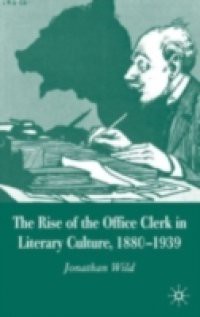This innovative study investigates the emergence and impact of the modern office clerk on English literature during a period in which both clerical work and the publishing industry were experiencing unprecedented growth: a 350 per cent rise in office employees between 1871 and 1911 was mirrored by a similar level of expansion in the publication of new novels, magazines and newspapers. Educational reforms carried out in this period triggered the development of a new literate sector of society able to take up those posts increasingly available in the burgeoning commercial world. These individuals represented a substantial new market for print culture and this study maps the effects of this dynamic sector of urban society upon the field of cultural production. Employing a wealth of original source materials, and engaging with current critical debates, this book offers unique insights into unjustly overlooked aspects of British social and cultural history.

